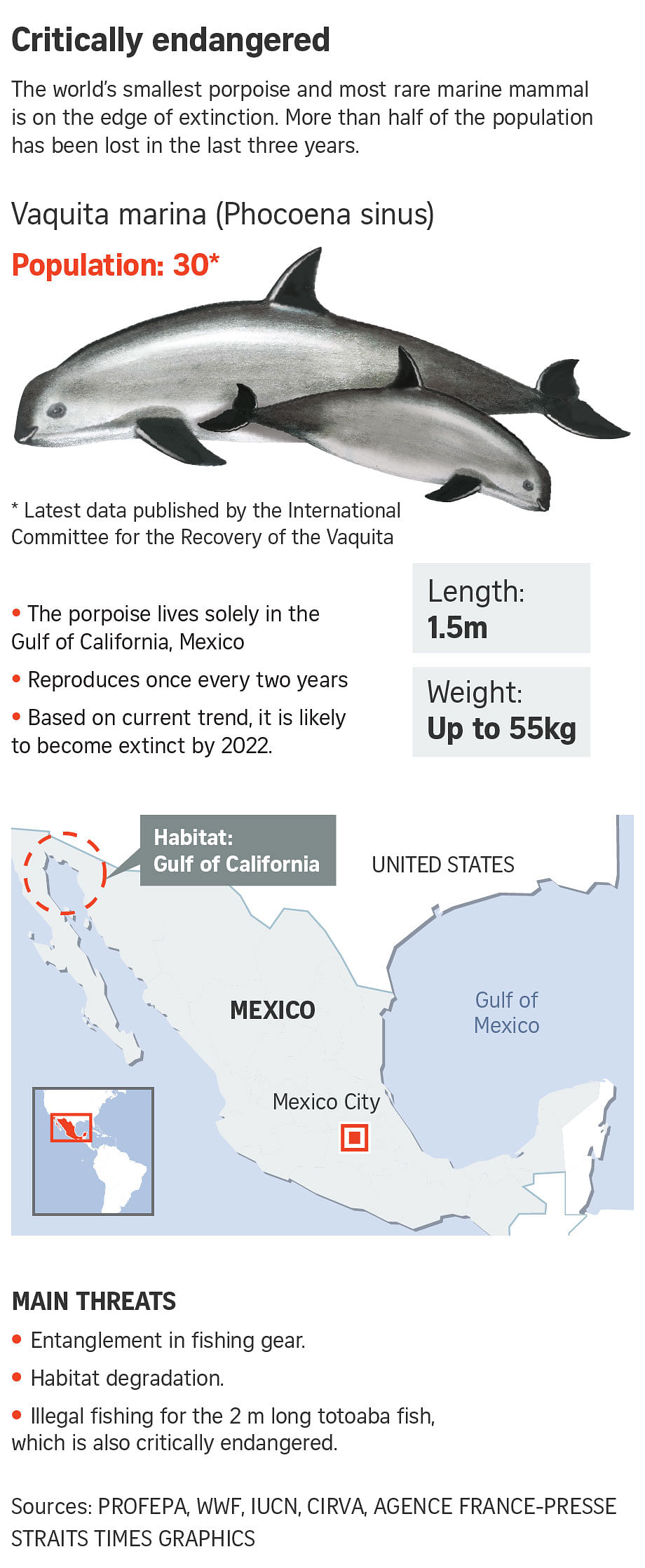Mexico's vaquita porpoise close to extinction, 30 left
Sign up now: Get ST's newsletters delivered to your inbox
Follow topic:
MEXICO CITY (AFP) - Mexico's vaquita marina is edging closer to extinction as scientists warned Wednesday (Feb 1) that only 30 were left despite navy efforts to intercept illegal fishing nets killing the world's smallest porpoise.
"The already desperate situation has worsened, despite existing conservation measures and current enforcement efforts," said the report by the International Committee for the Recovery of the Vaquita (CIRVA).
"At the current rate of loss, the vaquita will likely decline to extinction by 2022, unless the current gillnet ban is maintained and effectively enforced."
An analysis of acoustic data from the upper Gulf of California in northwestern Mexico found that, as of November, only about 30 vaquitas likely remained in their habitat, the report said.
A previous census between September and December 2015 had found around 60 vaquitas. There were 200 of them in 2012 and 100 in 2014.
In the possibly last-ditch effort to save the vaquita, scientists have announced plans to capture specimens and put them in an enclosure in the Gulf of California where they can reproduce.

Some environmentalists oppose this because of the risk that vaquitas could die in the process.
CIRVA member Lorenzo Rojas-Bracho told AFP that scientists would attempt to catch vaquitas around October.
"Illegal fishing continues and if we don't capture them, they will die anyway," he said.
During 15 days in October and November last year, 105 pieces of illegal, abandoned or derelict fishing gear were found and 85 were removed, the new report said.
Authorities and environmentalists say the vaquitas have been dying for years in gillnets that are meant to illegally catch another endangered specie, a large fish called the totoaba.
Smugglers ship the totoaba's dried swim bladder to China, where it fetches tens of thousands of dollars and is eaten in soup.
"This shows that illegal fishing activities, particularly the setting of large-mesh gillnets for totoaba, continue at alarming levels within the range of the vaquita (habitat)," the report said.
CIRVA has called for a permanent ban on all gillnets.
President Enrique Pena Nieto deployed the navy in 2015 to stop illegal fishing, increased the vaquita protection area and imposed a two-year ban on gillnets.
Known as the "panda of the sea" because of the dark rings around its eyes, the 1.5-meter cetacean has rarely been seen alive.

